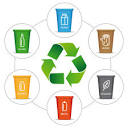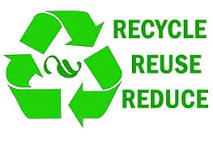Waste Management
Waste Management: A Comprehensive Overview

What is Waste Management:
Waste management is the process of collecting, transporting, treating, and disposing of waste in a safe and environmentally friendly manner.
Types of Waste:
Thus, there are various sorts of waste, including:
Municipal Solid Waste (MSW):
Consequently, households and businesses generate this type of waste. therefore, it includes food scraps, paper, plastic, metal, and glass.
Industrial Waste:
Industrial processes, such as manufacturing and mining, generate this type of waste. It can include hazardous materials, such as chemicals and heavy metals.
Agricultural Waste:
Agricultural activities, such as farming and livestock production, generate this type of waste. Therefore, it includes manure, crop residues, and animal carcasses.
Medical Waste:
Medical facilities, such as hospitals and clinics, generate this type of waste. It can include infectious materials, such as blood and needles.
Electronic Waste (e-waste):
Discarded electronic devices, such as computers, televisions, and cell phones, generate this type of waste. Thus, E-waste can contain unsafe materials, like lead and mercury.

Challenges of Waste Management:
One of the biggest challenges of waste management is the increasing volume of waste being generated. According to the World Bank, the global generation of MSW is expected to reach 2.01 billion tonnes per year by 2025. This increase is due to a number of factors, including population growth, urbanization, and economic development. Another challenge of waste management is the complexity of waste.
Waste streams:
We are discarding a wider variety of materials, making waste streams increasingly complex. Thus, this makes it more difficult and expensive to sort and recycle waste. In addition, waste management can have a negative impact on the environment. Landfills, which are the most common method of waste disposal, release methane, a greenhouse gas that contributes to climate change. Landfills also leach pollutants into the soil and water.
Waste Management practices:
Thus, there are various sorts of waste management practices, including:
Reduce:
We need to reduce the amount of waste that we generate in the first place. This can be done by designing products that are more durable and reusable, and by encouraging consumers to buy less and repair items instead of throwing them away.
Reuse:
This involves using discarded items again in their original form. For example, empty glass jars can be reused to store food.
Recycle:
This involves converting discarded materials into new products. So, we can use recycled paper to make new paper products.
Composting:
This involves breaking down organic materials, such as food scraps and yard waste, into a nutrient-rich soil amendment.
Incineration:
This involves burning waste to reduce its volume and mass. Incineration can be used to generate electricity or heat, but it also releases pollutants into the air.
Landfilling:
This includes covering waste in a landfill. Landfills are the most common method of waste disposal, but they can have a negative impact on the environment.

Waste Management Technologies:
1. Mechanical Sorting for Waste Management:
Thus, there are number of different waste management technologies that can be used to reduce, reuse, recycle, and compost waste. These technologies include:
2. Optical Sorting for Waste Management:
This technology uses cameras and sensors to identify and sort waste materials.
3. Bioreactors For Waste Management:
These devices are used to accelerate the composting process.
4. Incinerators for Waste Management:
These devices are used to burn waste to generate electricity or heat.
5. Landfill gas collection systems:
These systems collect methane gas from landfills and use it to generate electricity or heat.
Sustainable Waste Management:
Sustainable waste management is a holistic approach to waste management that focuses on reducing the environmental impact of waste. It involves using a combination of waste management practices and technologies to minimize the amount of waste that is generated and disposed of in landfills.

Sustainable waste management strategies include:
Waste prevention:
This involves designing products and services that reduce the amount of waste generated in the first place.
Waste reduction:
This involves reducing the amount of waste generated by individuals and businesses.
Waste recycling:
This involves converting discarded materials into new products.
Waste composting:
This involves breaking down organic materials into a nutrient-rich soil amendment.
Waste-to-energy:
This involves converting waste into electricity or heat.
Conclusion:
Waste management is a complex and challenging task, but it is essential for protecting the environment and public health. By using a combination of waste management practices and technologies, we can reduce the amount of waste that is generated and disposed of in landfills.
